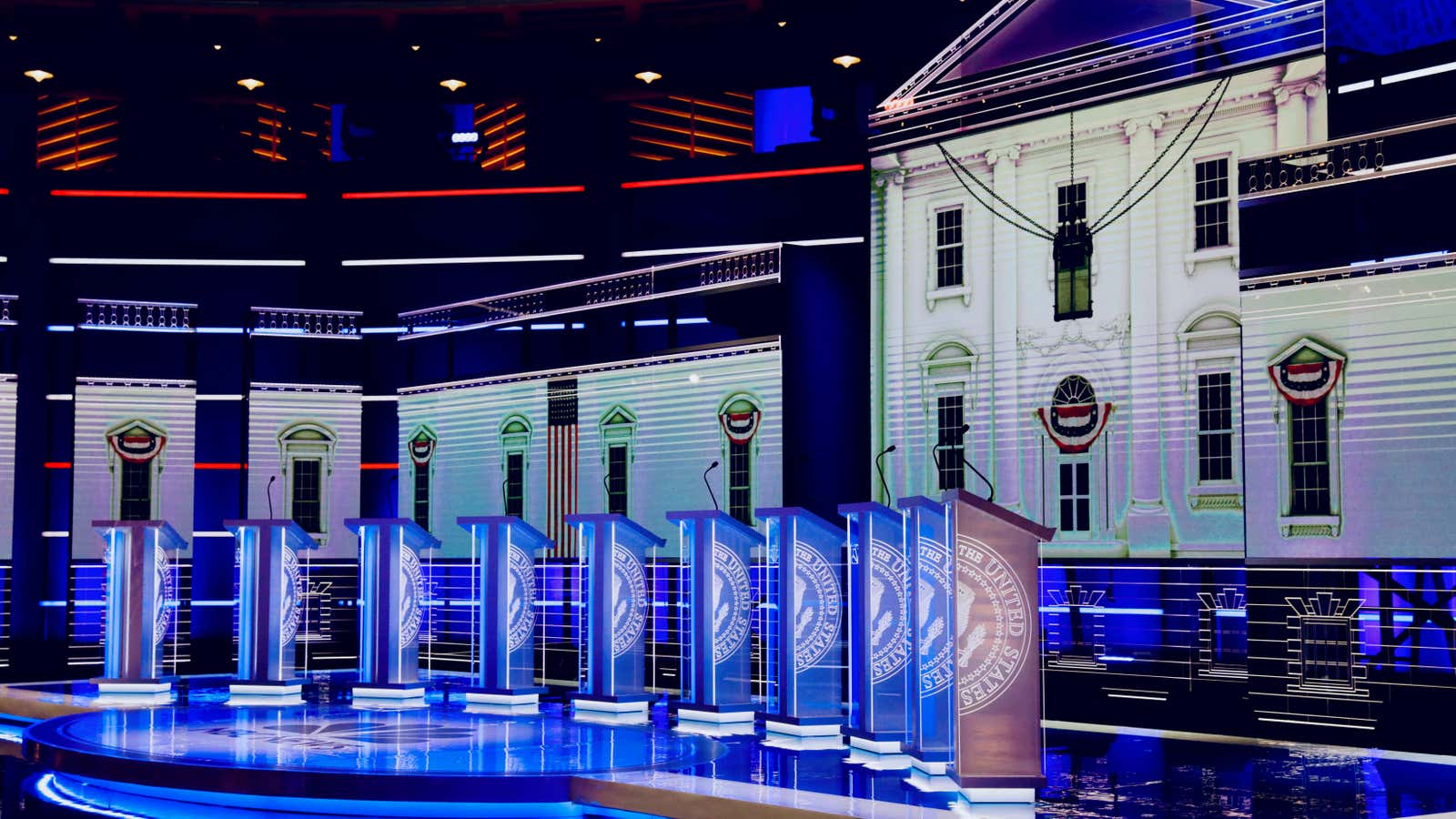Are you looking for a new political true love but unsure who deserves your heart and vote in the 2020 US presidential elections? Well, the Democratic National Committee (DNC) knows a bunch of people who want to woo you and has just the thing to help you choose.
Basically, the DNC is running speed dating for candidates, hosted by NBC News. Officially the events are known as presidential primary debates. Tonight and tomorrow (June 26 and 27), 20 of the party’s 25 presidential hopefuls—including a mayor, an entrepreneur, a former punk rocker, and a bunch of senators, among others—will all gather in Miami to answer questions in two groups of 10 for two hours at a time. And like the romantic version of such breathless events, you can probably expect to learn little of substance, but will likely emerge with at least some superficial feelings about the people aiming to be the next commander-in-chief.
The first round of candidates to take the stage will be Bill de Blasio, Tim Ryan, Julián Castro, Cory Booker, Elizabeth Warren, Beto O’Rourke, Amy Klobuchar, Tulsi Gabbard, Jay Inslee, and John Delaney. The following night pits Marianne Williamson, John Hickenlooper, Andrew Yang, Pete Buttigieg, Joe Biden, Bernie Sanders, Kamala Harris, Kirsten Gillibrand, Michael Bennet, and Eric Swalwell against each other.
If you don’t already know everyone on the list or what they stand for, well, you are not alone. The field is packed and the candidates’ policy positions won’t be thoroughly explained during the debates because it’s not that kind of forum. Anyway, many of them share a similar vision for the future, as Quartz has noted, promoting universal healthcare, pushing for regulations to curb climate change, reducing inequality, and improving conditions for the American middle class. Instead, this is an opportunity for candidates to utter carefully crafted sound bites and issue grand aspirational statements that capture voters’ imaginations, or at least get us to remember their names.
As Clare Malone, senior political correspondent at Five Thirty Eight puts it, debates “are pseudo-events—PR opportunities manufactured by parties and news organizations to provide turning points and tension during a long slog.” She argues that debates are only meaningful because the media and parties make them out to be important.
Candidates would probably beg to differ, however. For those who are lesser known and lagging in the polls especially, debates are a chance to be seen and heard by millions of prospective voters they are not reaching. In 2015, the first Republican presidential primary debate for the 2016 presidential elections featured 10 candidates and 24 million viewers tuned in to watch them on Fox News. The first Democratic primary debate in October 2015, hosted by CNN and Facebook with five candidates on the stage, garnered 15.3 million views.
That’s a lot of eyeballs and no candidate can afford to scoff at the opportunity. From their perspective, the debates are a win-win, even if they don’t emerge as winners necessarily, simply because they will be seen and heard, however briefly. As in speed dating, the debaters will only have a few minutes each to make an impression. But those candidates who can master the harried form will emerge victorious if they’ve convinced even a single voter to take an interest in them as a result, or just gotten us to finally notice they are running.
